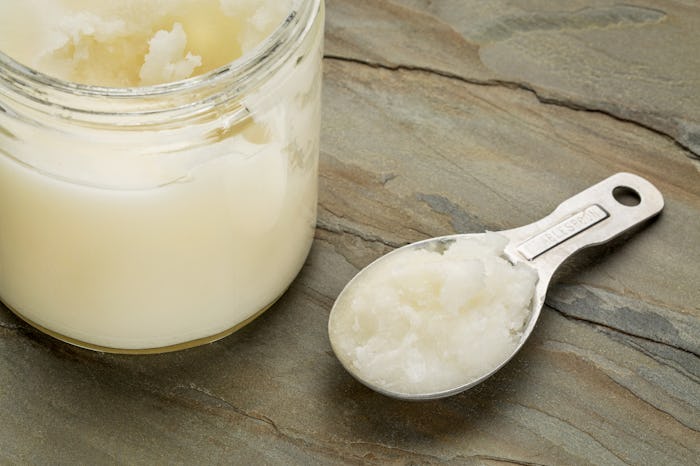Breastfeeding is like a relationship — when things are going well, it is wonderful. But when things start to go wrong, it makes you question your decision. Not to mention it can be terribly painful. Engorgement, clogged ducts, and thrush are just a few of the fairly common issues nursing moms can face. But thrush, unlike other ailments, can be painful for you and your baby. If you are looking for some relief from this painful infection, you may not have to look further than your kitchen for help. If you want a natural remedy that is safe for you and your baby, you may be wondering, can coconut oil treat thrush?
According to WebMD, thrush is an infection caused by the candida fungus. Thrush is common in babies, women, and people with weaker immune systems. The warm, moist conditions that breastfeeding creates makes your baby's mouth the perfect environment for thrush. As the Nursing Mothers Council mentioned, thrush usually appears in white patches on baby's mouth that have the appearance of cheese curds. In mothers, thrush can cause flaky skin on the areola along with pain and itching on the nipples. Since mom and baby can infect one another, it is important that if either you or your baby have thrush, that you both receive treatment together, as Breastfeeding Problems mentioned.
But can that treatment involve coconut oil? According to Wellness Mama, pure coconut oil has amazing antifungal and antibacterial properties, which make it effective in helping to treat infections. As Belly Belly mentioned, using coconut oil in your foods and directly on your skin can be an effective natural remedy for thrush.
But even though coconut oil can provide relief, it is not necessarily a cure. "There is a very mild anti-fungal property in coconut oil," international breastfeeding and lactation consultant Michelle Kunschke tells Romper. "It may be that it can help keep yeast at bay, however if there is a yeast infection, coconut oil will not be sufficient to resolve the problem." So, you'll likely need to make an appointment with your doctor. But in the meantime, this pantry staple can provide some much-needed relief.
This article was originally published on
